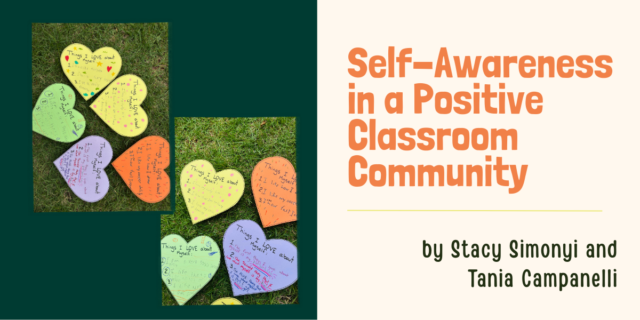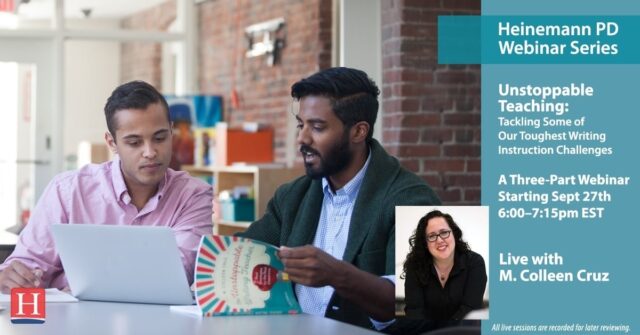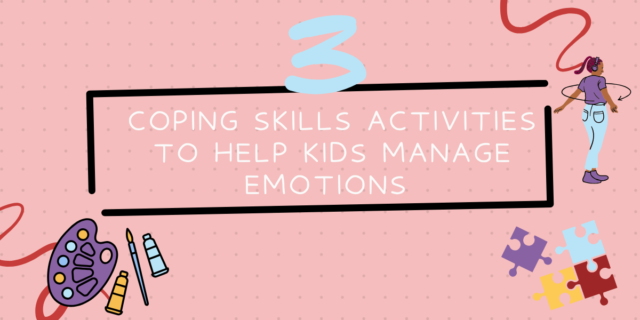
Positive, supportive relationships help students develop socially and emotionally, and help you to effectively manage your classroom. In the new book Classroom Management Matters, Gianna Cassetta seeks to help you create a positive environment that can be planned, taught, and supported from the first day of school.
In today’s post adapted from the book, we'll explore some practical ways to build positive relationships with students.
Learn About Your Students’ Lives Outside of School
Never underestimate what families can and will share, regardless of their socioeconomic or cultural background. Families love to tell you all the great, quirky things about the children they live with and love. You can interview families, either by phone or in person, as an easy way to learn more about your students.
Show Children That You Will Keep Them Safe
There are few things more detrimental to any student-teacher relationship than for the child to believe the adult is not looking out for their emotional or physical well-being. Children watch us and they notice if we care if they are being treated well, unfairly, or inappropriately. Remember to always “close the loop” with children; if you say something or if they came to you with a concern, let them know you are aware and that you will take action. When an action has been taken, check in again, so that they don’t think you “did nothing.”
Validate Students’ Feelings
Feelings aren’t wrong, even if you don’t share them. When you have a student who returns from recess and her behavior is escalating, yelling that she got pushed and is going to punch someone, try empathizing out loud by giving her a mirror to her feelings. By showing empathy, you’ll make students more open to your advice on what to do next.
Spend Nontraditional Academic Time or Nonacademic Time With Students
If you really want to build a relationship with a student, you may need to show up for them in the same way you expect them to show up in your class. When you plan that next field trip, be sure the students who you need to bond with are in your group. Eat lunch with your students, and be intentional about who you eat with, and how often. These efforts aren’t a reward for good behavior and should not be withheld because of misbehavior.
Speak With Positivity and Compassion
Teaching is the one job where you have to find something to like about all of your students. Find it, and tell them. Everyone has competencies even if they aren’t the ones you want them to have. Remember to communicate with compassion and kindness, especially when you are most frustrated with a student.
A positive relationship does not mean an easy one. If you think about any positive long-term relationship you have had—with a sibling, a teacher, a parent, a friend, a coworker—you can identify unavoidable difficulties. What defines the quality of the relationship isn’t just your ability to get along but your commitment to figuring things out when you don’t. Your students need you to commit to a positive relationship with them.
♦ ♦ ♦ ♦
With reflection questions, classroom examples, and summaries of supporting studies from researcher Brook Sawyer, Classroom Management Matters helps you become a learning leader in the classroom instead of an authority. Classroom Management Matters is out now.
 Gianna Cassetta is an experienced classroom teacher, school leader, and consultant. She has worked as Director of Leadership Development for the Office of School Reform and Innovation at Denver Public Schools. She is cofounder of the Future Leaders Institute, a charter school in New York, and of SOAR Schools in Denver.
Gianna Cassetta is an experienced classroom teacher, school leader, and consultant. She has worked as Director of Leadership Development for the Office of School Reform and Innovation at Denver Public Schools. She is cofounder of the Future Leaders Institute, a charter school in New York, and of SOAR Schools in Denver.
 Brook Sawyer is a former middle school teacher and elementary guidance counselor. She researches the development of at-risk preschoolers by examining and enhancing teacher practice.
Brook Sawyer is a former middle school teacher and elementary guidance counselor. She researches the development of at-risk preschoolers by examining and enhancing teacher practice.


